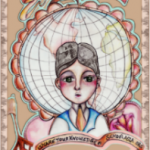At the EU Seminar on “Regional Approaches to Human Rights in Europe and Southeast Asia”, held on 10th December 2012 to mark Human Rights Day, AWARE President Winifred Loh spoke about how women’s rights are human rights and the need to take an intersectional approach to policy making.
Speech by Winifred Loh, AWARE President
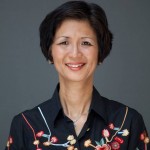 Good morning.
Good morning.
If there is one message that echoes forth from this conference, let it be that human rights are women’s rights and women’s rights are human rights, once and for all.
Those words were uttered by Hillary Clinton in 1995 at the UN Conference on Women in Beijing. They remain relevant today here in Singapore 17 years later.
I. Gender equality as a key principle of universal human rights
In my talk today, I hope to show how a feminist perspective can contribute to the development of civil society in Singapore and elsewhere. As Singapores leading feminist organisation, AWAREs vision and mission articulate this feminist perspective. We envisage a society where there is true gender equality – a society where women and men are valued as individuals free to make informed and responsible choices about their lives. Our mission is to remove all gender-based barriers that prevent individuals in Singapore from developing their potential to the fullest, and realising their personal visions and hopes.
Over the last 26 years, AWARE has worked hard to fulfill its vision and mission. Our efforts have helped to bring about many significant changes in Singapore society. For example, in 2004 and 2005, two changes we had for many years called for finally came to fruition – the Constitution was amended to accord equal citizenship rights to the children of Singaporean women, and the families of female civil servants enjoyed the same medical benefits as male officers.
As we commemorate International Human Rights Day, let us remember that in 1948, the Universal Declaration of Human Rights explicitly affirmed gender equality as a key principle of universal human rights to be enjoyed by all humans, male and female.
It is this early recognition of gender equality as intrinsic to human rights that made it possible to develop the Convention for the Elimination of All Forms of Discrimination against Women, usually referred to as CEDAW, which was adopted by the United Nations General Assembly in 1979.
CEDAW has been described as The International Bill of Rights for Women. It defines the right of women to be free from discrimination and sets the core principles to protect this right. CEDAW also establishes an agenda for national action to end discrimination, and provides the basis for achieving equality between men and women in all areas of life, including both public and private spheres.
CEDAW is particularly significant for Singapore because it was one of the first two human rights treaties signed by us in 1995. In that bumper year, the other human rights treaty signed by Singapore was the Convention on the Rights of the Child (CRC). It has taken 17 years for Singapore to sign a third human rights treaty, but we are nevertheless happy that Singapore has now signed the Convention on the Rights of Persons with Disabilities (the CRPD).
As Singapore takes its international obligations seriously, the signing of these three treaties is very significant. Taken together, they form a declaration to the international community that Singapore will endeavour to eliminate the inequalities and injustices suffered by women, children and persons with disabilities. We as citizens of Singapore expect the Government to undertake due diligence to implement the principles, duties and obligations enshrined in these three human rights treaties.
2. Intersectionality
In taking steps to implement these three treaties, we should be mindful that children consist of boys and girls, and that persons with disabilities are both male and female. Indeed, the Convention on the Rights of the Child spells out how the girl child is often subjected to particular forms of discrimination. Just this year, the International Day of the Girl Child was inaugurated, based on a United Nations General Assembly resolution, with the date 11 October set aside to commemorate girls rights and to create awareness about the challenges girls face all over the world.
Similarly, the Convention on the Rights of Persons with Disabilities recognises that women and girls with disabilities are often at greater risk, both within and outside the home. They are often more vulnerable to gender-based violence, abuse, injury, neglect, maltreatment and exploitation. Equality between men and women is a key principle of this Convention, which devotes one whole article to women with disabilities.
So it is not just CEDAW that recognises gender equality and addresses the rights of women and girls. Other Conventions also do so because women and girls may be subjected to multiple layers of discrimination. The term intersectionality is used to refer to these compounded forms of discrimination. For example, the discrimination experienced by women may be compounded by age, disability, poverty, ethnicity or other forms of discrimination. In fact, CEDAW contains a General Recommendation (no. 28), which calls on all States to recognize and prohibit such intersecting forms of discrimination and their compounded negative impact on the women concerned.
3. The need for civil society to address gender-specific concerns
How does awareness of these intersecting forms of discrimination contribute to the development of civil society, both in Singapore and elsewhere? Different civil society groups may focus on certain vulnerable sectors of society for example, the elderly, the young, the poor, the disabled, the HIV-infected, migrant workers, and others.
But every vulnerable sector is made up of males and females. More often than not, a woman in each vulnerable sector experiences violations of her rights that are not experienced by males. There are particular forms of discrimination experienced, for example, by the girl child, by women and girls with disabilities, by elderly women, poor women, ethnic minority women, and so on.
Civil society groups seeking to empower vulnerable members of society cannot be effective if they overlook the gender-specific differences between males and females in any given sector.
For example, can a civil society group addressing the needs of the elderly be effective if it overlooks the fact that females outlive males, yet are poorer than males?
Can a civil society group addressing the needs of the disabled be effective if it overlooks the gender-specific vulnerability of women and girls with disabilities?
Can a civil society group addressing family violence be effective if it overlooks the fact that most victims of family violence are female?
All too often, we find that the gender-specific experiences of women and girls across different sectors of society are simply not recognized, or dismissed as unimportant. This means that measures taken to address the needs of vulnerable sectors of society could even if unintentionally neglect the gender-specific needs of women and girls in these sectors. And so women and girls may become the most vulnerable of the vulnerable in society.
To remedy such omissions, AWARE is keen to build common ground with other civil society groups to address the needs and concerns of all vulnerable members of society, and especially the gender-specific needs of women and girls among those who are vulnerable.
4. Womens rights as human rights
In 1993, the UN World Conference on Human Rights in Vienna affirmed womens rights as human rights. Why did something so obvious need to be affirmed?
Because, even in human rights discourses, there has been a tendency to forget that half of humanity is female, who are entitled to the same human rights as the male half of humanity. There has been a tendency to assume that the conceptualisation of human rights based on male experiences is sufficient to cover all violations of womens rights.
But since 1993, the international community has increasingly recognised the need to address gender-specific violations of human rights, including violence against women and violations against womens sexual and reproductive rights. In this context, the wilful neglect of womens rights constitutes a human rights violation as it allows the gender-specific violations experienced by women to persist unchecked.
A key point here is that women have the right to enjoy human rights as full human beings. Their rights should not be reduced to the rights of wives and mothers, which are limited by roles that subordinate women to patriarchal family structures. No one thinks of the human rights of men as reduced to their rights as husbands and fathers.
5. Womens equal citizenship as the foundation of democracy
The development of civil society is often regarded as indicative of the growth of democracy. But in the process of democratisation, it is sometimes argued that it is necessary to secure democracy first, and then attend to womens rights.
This is wrong. Womens rights cannot be an afterthought. There can be no genuine democracy if half the population is not able to exercise their rights as equal citizens.
Equal citizenship can emerge only if there is equality in both public and private spheres of life. Democracy and human rights cannot be confined only to the public sphere, with no linkage to the private sphere, generally seen as the domain of the family. If women and girls are unequal members of family structures, if they are disempowered at home, can they still participate fully as equal citizens in the public sphere?
A democratisation process that starts out with accepting half the population as less than equal citizens cannot achieve true democracy. The promotion of womens rights as full human beings and equal citizens thus sits at the core of democratisation and the development of civil society.
6. Conclusion
To wrap up, these are the five points I hope you will think about:
- Gender equality is a key principle of universal human rights, to be enjoyed by all human beings, male and female.
- Women and girls can face multiple layers of discrimination. We must recognize this and peel back the layers, one by one.
- Civil society groups seeking to empower vulnerable members of society must address the gender-specific differences between males and females in any given sector. AWARE would be happy to work with other civil society groups on this.
- The wilful neglect of womens rights is a human rights violation. Womens human rights should not be reduced to the rights of wives and mothers, just as mens human rights are not reduced to their rights as husbands and fathers.
- There can be genuine democracy only if women are able to exercise their rights as equal citizens both in the public and private spheres. A society where women and girls are regarded as unequal members of family structures is NOT a truly democratic one.
This address was delivered at the EU Delegation’s Human Rights Conference on 9 Dec 2012.
 Volunteers are the lifeline of AWARE. AWARE has grown from its humble beginnings, where meetings took place in volunteers homes and offices, and documents were kept in the boots of cars, to an active and vibrant organisation headed by experienced and dedicated staff and volunteers.
Volunteers are the lifeline of AWARE. AWARE has grown from its humble beginnings, where meetings took place in volunteers homes and offices, and documents were kept in the boots of cars, to an active and vibrant organisation headed by experienced and dedicated staff and volunteers.





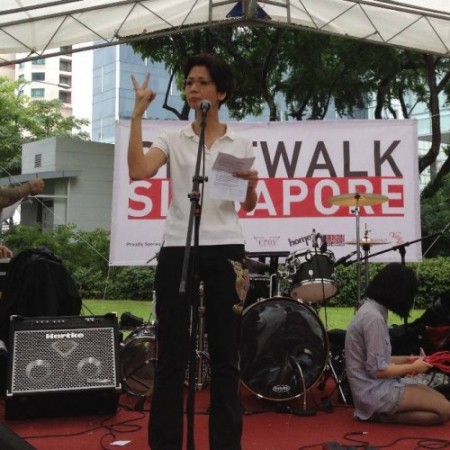
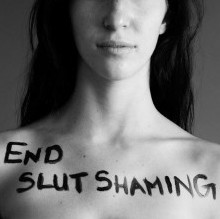
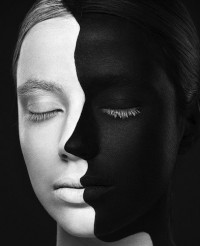
 Good morning.
Good morning.
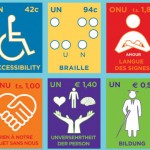
 Does such “dialogue and positive engagement” exist in Singapore? Singapore is generally seen as a multi-ethnic, multi-religious society where racism and disparagement of diverse religions and cultures are not tolerated. In 2008, then Senior Minister Goh Chok Tong credited Singapore’s “underlying tenet of tolerance and respect” for bringing harmony, stability and progress. However, the well-publicised incidents of racism and xenophobia in recent months lead us to ask whether these vaunted values of “tolerance and respect” have been truly integrated into the fabric of Singapore society.
Does such “dialogue and positive engagement” exist in Singapore? Singapore is generally seen as a multi-ethnic, multi-religious society where racism and disparagement of diverse religions and cultures are not tolerated. In 2008, then Senior Minister Goh Chok Tong credited Singapore’s “underlying tenet of tolerance and respect” for bringing harmony, stability and progress. However, the well-publicised incidents of racism and xenophobia in recent months lead us to ask whether these vaunted values of “tolerance and respect” have been truly integrated into the fabric of Singapore society.
